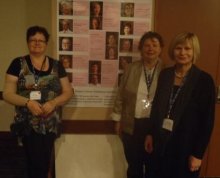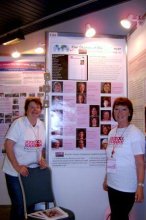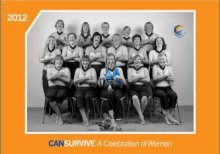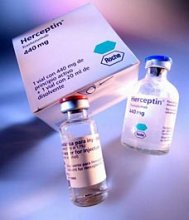
The 2011/2012 season got off to a great start with a regatta in November held by the Bay of Plenty Dragon Boat Club. Despite the extremely windy day, the sun peeped out and there was lots of laughter and fun as teams hit the water for their races.

The Annual ACB PACIFICA Breast Cancer Walk and Breakfast on October 8 was just one of the events the organisation has held throughout this year. It was truly a gathering that brought about awareness, support and fellowship. The morning was also a chance for them all to celebrate and remember their champions. The overwhelming turnout of nearly 200 and radiant smiles at such early hours of the morning was another reminder of just how much they have to be thankful for.

BCAC committee members Chris Walsh, Jenny Williams and Rowena Mortimer recently attended the 10th National Psycho Social Oncology Conference in Hamilton. The theme for this year’s conference was Shaking up psycho oncology practice, practicalities and possibilities. The BCAC team gave a presentation about the development and creation of Kiwi Stories of Breast Cancer, the BCAC web videos.

PACIFICA Auckland had a busy month in October focusing on Breast Cancer Action – they held a Breast Cancer Walk & Breakfast which 200 women attended. Below is the link to their branch October newsletter which highlights their activities along with lots of photos.

BCAC Deputy Chair Chris Walsh and committee member Sue Ellis recently returned from the 16th International Reach to Recovery conference “Reach Towards a New Horizon”, held this year in Taipei, Taiwan.

For this year’s fundraising the Cansurvive Dragon Boat Team decided to produce a calendar – but not just any calendar. Their calendar, A Celebration of Women, features team members posing "Calendar Girls" style with dragon boat props!

Roche announced last month (October 2011) that the Phase III HannaH study demonstrated that a new, subcutaneous (SC) formulation of Herceptin (trastuzumab) performed similarly to the standard intravenous (IV) infusion of Herceptin in women with HER2-positive early breast cancer.

Patients with life-threatening Pompe disease will march on Parliament this week (Nov 16, 2011) to call for a commitment from all political parties for treatment of their disease, and to put in place an orphan drugs access programme to ensure a fair go is extended to all other patients with rare diseases when new treatments are developed in the future.
The BCAC AGM was held on Friday, November 4, at the Auckland Cancer Society in Grafton. A number of members took the opportunity to meet with the committee and other members and hear what BCAC has been up to over the last 12 months. BCAC Chair Libby Burgess outlined BCAC’s achievements this year and Treasurer Louise Malone provided a snapshot of the organisation’s financial report.

Oysters for Lunch - Writings by women living with secondary breast cancer
More than 2,600 New Zealand women and men are diagnosed with breast cancer every year and about 15% will hear the news that the breast cancer has spread to other parts of their body. At this stage the advanced cancer, also known as metastatic or secondary, is incurable.



